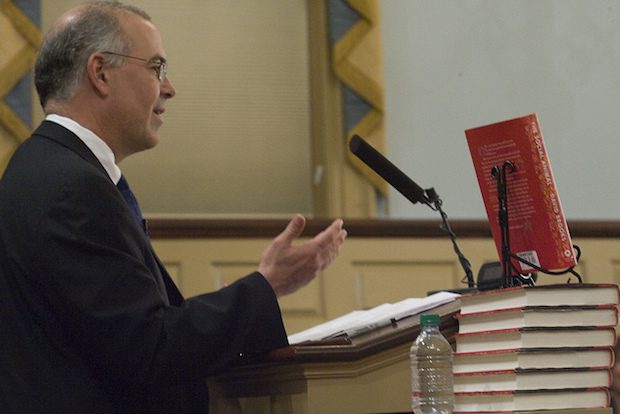Pragmatists and Ideologues

David Brooks has a problem with pragmatists:
Pragmatists often fail because they try to apply economic remedies to noneconomic actors. Those who threaten civilization — Stalin then, Putin and ISIS now — are driven by moral zealotry and animal imperatives. Economic sanctions won’t work.
It’s true that economic sanctions don’t “work” (i.e., they don’t compel other actors to do what our government wants), but that really has very little to do with the motives of these so-called “noneconomic actors.” Economic sanctions don’t compel other states or groups to behave as we wish they would because sanctions are a useless tool for doing this. Sanctions impose a cost on an actor for behaving a certain way, but on the whole they never have the effect of forcing that behavior to change significantly. There are many reasons for this. Sometimes the actor simply resents interference from outside, and sometimes the sanctions prove counterproductive by making the actor place greater value on whatever he is being sanctioned for. The attempt to compel one kind of behavior naturally generates resistance and makes the actor more combative and defiant than he was before, which makes the desired change in behavior even less likely. These reactions are not limited to “those who threaten civilization.” They are common human reactions to being chastised and pressured by others. These would be the reactions of people living under all kinds of regimes in every part of the world. It doesn’t matter whether the other actors are driven by “moral zealotry” or simple self-aggrandizement or something else: imposing sanctions is what a government does to express displeasure when there is nothing else that it can do. I assume that in most cases the advocates of sanctions know that they won’t “work,” but they demand them anyway to “send a message.” A case can be made that imposing sanctions is not pragmatic at all, since it never seems to achieve anything constructive.
Brooks assumes that “pragmatists can’t understand nonpragmatists,” but the reverse would seem to be much closer to the truth. It is ideologues that are usually incapable of understanding how those that don’t share their assumptions look at the world, which is why ideologues tend to be so much more impatient with and intolerant of people that don’t conform to their expectations. Since they are usually drawn towards pragmatism out of revulsion for grand ideological projects, I’d say that pragmatists have a reasonably good understanding of the people behind such projects, which is why they do their best not to imitate them.
Comments